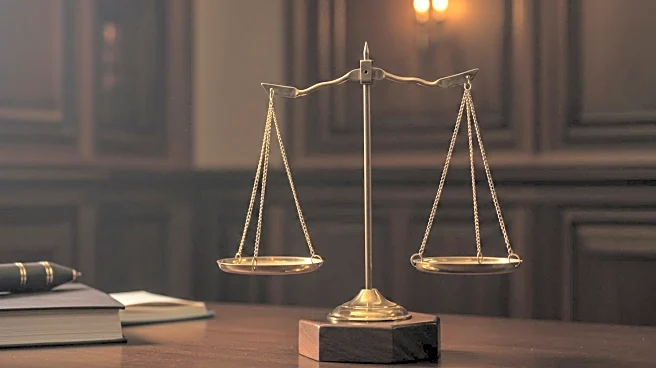What's Happening?
The Supreme Court has left legal analysts and court-watchers in a state of uncertainty regarding its handling of emergency orders. The Trump administration has requested the justices to permit U.S. Immigration and Customs Enforcement (ICE) agents to continue employing aggressive tactics in their immigration enforcement efforts in the Los Angeles area. These tactics have been criticized by civil rights groups as constituting racial profiling. The lack of clarity from the justices on how they will address this request has led to speculation about the court's approach to emergency orders, which are often issued without detailed explanations.
Why It's Important?
The ambiguity surrounding the Supreme Court's emergency orders has significant implications for U.S. immigration policy and civil rights. If the court allows the continuation of aggressive ICE tactics, it could set a precedent for similar actions nationwide, potentially affecting thousands of immigrants and raising concerns about racial profiling. This situation highlights the tension between national security measures and civil liberties, with potential impacts on public trust in the judicial system. The court's decision could influence future immigration enforcement strategies and the legal framework governing such actions.
What's Next?
The Supreme Court's decision on this matter is eagerly anticipated by both government officials and civil rights advocates. A ruling in favor of the Trump administration could embolden ICE to expand its enforcement tactics, while a decision against it might lead to a reevaluation of current practices. Legal experts and civil rights groups are likely to continue monitoring the situation closely, potentially leading to further legal challenges or policy changes depending on the outcome.
Beyond the Headlines
The court's handling of emergency orders without detailed explanations raises broader questions about transparency and accountability in the judicial process. This practice can obscure the reasoning behind significant legal decisions, affecting public perception of the court's impartiality and fairness. The ongoing debate over the balance between security and civil rights underscores the complex ethical and legal challenges faced by the judiciary in addressing contemporary issues.












